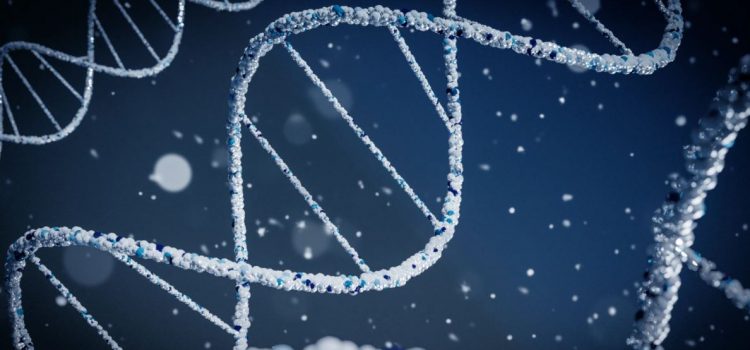

This article is an excerpt from the Shortform book guide to "Scattered Minds" by Gabor Maté. Shortform has the world's best summaries and analyses of books you should be reading.
Like this article? Sign up for a free trial here.
Where does ADHD come from? Is ADHD caused by genetics or your environment?
According to Scattered Minds by Gabor Maté, there are many factors that could explain why your brain developed atypically. There’s a biopsychosocial approach to the origins of ADHD that lead to the psychological symptoms associated with ADHD.
Let’s dive into the causes of ADHD, as well as the role genetics and childhood stress play in it.
The Biopsychosocial Approach to ADHD
Where does ADHD come from exactly? Maté says that when he wrote this book, most experts believed that ADHD had exclusively biological origins—you’d only develop ADHD if you inherited the genes responsible for it. He argues that ADHD actually has biological, psychological, and social causes, and provides two justifications for a biopsychosocial approach to ADHD.
(Shortform note: Maté doesn’t use the term “biopsychosocial,” but his theory of ADHD aligns with the biopsychosocial model of health, a relatively new approach that considers how your biology, psychology, and social environment each contribute to your overall health. Experts have used this model for a variety of applications, especially in the mental health field. But other experts criticize the model, believing that it’s too conceptually vague and lacking in scientific rigor.)
Maté’s first argument for why ADHD can’t be purely genetic is that genes are merely blueprints that tell your body how to organize itself. How your body expresses a given genetic trait as you grow up depends on environmental factors—the circumstances you live in.
(Shortform note: The relative contributions of your genes and your environment to the development of a mental illness is commonly known as the diathesis-stress model. According to this model, mental disorders like depression, anxiety, and schizophrenia develop in two steps. First, you’re born with a genetic predisposition to the disorder, which you inherited from your family. Then, something stressful happens to you, which triggers the onset of symptoms.)
Maté also argues that when interpreted correctly, research supports the view that ADHD isn’t exclusively biological in origin. Studies show that if you’re related to someone with ADHD, you’re more likely to have ADHD yourself—this is often taken to suggest that ADHD has a significant biological basis, but Maté says relatives often also share the same environments, and your environment can have an equally significant impact on your psychological development.
(Shortform note: Some modern research shows that ADHD is mostly, if not entirely, genetically based, and some studies have even identified specific DNA sequences that seem to be associated with a higher risk of ADHD. Some research suggests that environmental factors—like prenatal and childhood exposure to neurotoxins such as nicotine—may be linked to ADHD, but these aren’t the kinds of environmental factors Maté is pointing to.)
The Role of Genetics in ADHD
Maté says that the genetic basis of ADHD is a sensitive temperament, which predisposes you to ADHD by making you more susceptible to environmental stress. If you inherited a sensitive temperament, you’re biologically primed to readily pick up on and have more intense reactions to physical and emotional stimuli.
According to Maté, sensitivity can be advantageous—since you’re more attuned to the world around you, you take notice of the world’s most subtle complexities, and you’re given to feelings like awe, wonder, and appreciation. With those strengths under your belt, you could fill an important creative or spiritual role in society.
But sensitivity can also be disadvantageous because it makes you more likely to be negatively affected by your environment. For example, Maté cites studies that say people with ADHD are more likely to have allergies, lower pain tolerance, and higher emotional reactivity—their responses to both positive and negative emotions are just more extreme. If you’re more susceptible to environmental stress, you’re more likely to suffer the negative effects of stress—including the harmful impacts it can have on your developing brain.
| Genetic Sensitivity and Highly Sensitive Persons Maté’s description of genetic sensitivity is very similar to the idea psychologist Elaine Aron describes in her book, The Highly Sensitive Person. According to Aron, one in five people inherit a trait that makes them highly sensitive—if you have this trait, you’re a highly sensitive person, or HSP. She names three strengths associated with high sensitivity: the ability to process information very deeply, the ability to discern subtleties better than the average person, and a high level of empathy and strong emotions. Like Maté, Aron believes that high sensitivity can be evolutionarily advantageous—she says the trait continues to proliferate because society needs people who can think and feel deeply to step up to the plate as judges, advisors, and priests—leaders whose advice the less sensitive part of the population can depend on for survival. She also notes, as Maté does, that high sensitivity has a major pitfall: Since you’re so attuned to your environment, you become overstimulated more easily, which can make dealing with the demands of daily life challenging. However, experts’ opinions are divided as to whether there’s a relationship between the HSP trait and ADHD. Aron admits that she’s not very familiar with ADHD, but she believes that the two are mutually exclusive because HSPs are generally too thoughtful to struggle with impulse control. On the other hand, at least one recent study has demonstrated that HSP traits are correlated with ADHD traits, and some psychologists have noted that HSPs are often misdiagnosed with disorders like ADHD when their sensitivity impairs their ability to function. |
The Role of Childhood Stress in ADHD
Based on anecdotal evidence from his life and the lives of his patients, Maté believes that the psychosocial basis of ADHD is early childhood stress.
(Shortform note: Experts dispute the notion that ADHD is caused by social-environmental factors like early childhood stress. According to the Centers for Disease Control and Prevention, most research suggests that stress may exacerbate ADHD symptoms, but it can’t cause them because ADHD is something you’re born with.)
Maté says that early childhood stress includes obvious stressors like neglect, abuse, or separation from your parents—but if you’re genetically predisposed to be highly sensitive, you were probably stressed by even the most subtly negative social interactions. Your parents may have been very loving and attentive toward you, but if they were stressed themselves, your home may have had an imperceptibly tense emotional atmosphere. Your sensitive temperament gave you greater, unconscious awareness of that tension—for example, on some level you may have noticed that your parents didn’t smile at you often enough. As a result, you became stressed too, even if you weren’t consciously aware that you felt stressed.
(Shortform note: Research affirms that people with ADHD are prone to experiencing unbearably intense negative feelings in response to subtly negative social interactions—this is known as rejection sensitive dysphoria (RSD). If you have RSD, your brain interprets perceived or actual rejection as a serious threat to your well-being—so, for example, you may find yourself lashing out at others when you feel that they disapprove of you. While Maté argues that something like RSD is one of the factors that leads you to develop ADHD, other experts recognize RSD as a symptom associated with—rather than a cause of—ADHD.)
According to Maté, early childhood stress is harmful because it ruptures the parent-child bond—the set of consistently positive interactions (and resulting positive feelings) that occur between a parent and child. (Shortform note: Psychologists commonly refer to the ruptured parent-child bond as insecure attachment. If you were insecurely attached to your parents, you felt that you couldn’t rely on them to consistently meet your physical and/or emotional needs.)
How the Parent-Child Bond Affects Your Development
Maté explains that the parent-child bond influences your cognitive-emotional development in two ways:
First, consistently positive parent-child interactions produce positive feelings, which set off neurochemical processes that promote the physical growth of your brain by building new neural pathways and strengthening existing connections. On the other hand, if you don’t have consistently positive interactions with your parents, you become physiologically stressed. Stress sets off a neurochemical reaction that inhibits neural growth. If you endured a lot of early childhood stress, your brain simply didn’t have the opportunity to develop as it typically would.
Maté argues that the neurological effects of early childhood stress can be seen most clearly in the prefrontal cortex (PFC), which studies suggest is underdeveloped in people with ADHD. The PFC is the part of your brain responsible for managing attention, impulse control, and stillness—if your PFC is underdeveloped, you lack the physiological structure needed to support typical functioning in those areas.
Second, consistently healthy parent-child interactions teach you important psychological skills—like how to manage your attention, control your impulses, and regulate stillness. For example, Maté explains that you typically learn how to pay attention by having positive interactions with your parents—you want more of the feel-good endorphins these interactions give you, so you learn to focus on your parents when they’re focused on you.
On the other hand, if interacting with your parents was stressful, you never got the opportunity to learn these skills. For example, Maté believes that your difficulty with attention stems from when your brain automatically dissociated your attention from the discomfort you were experiencing when your parents stressed you out. Dissociation is an automatic survival mechanism: Distress takes a physical toll on your body, so your brain protects you by dissociating from your stress. If you had enough negative interactions with your parents, inattention gradually became your baseline state. As a result, you’re only able to pay attention when it’s emotionally rewarding enough—otherwise, it requires an immense conscious effort.

———End of Preview———
Like what you just read? Read the rest of the world's best book summary and analysis of Gabor Maté's "Scattered Minds" at Shortform.
Here's what you'll find in our full Scattered Minds summary:
- How ADHD is caused by early childhood stress that hinders development
- Why medication isn't the best way to treat ADHD
- How society can prevent ADHD in future generations






